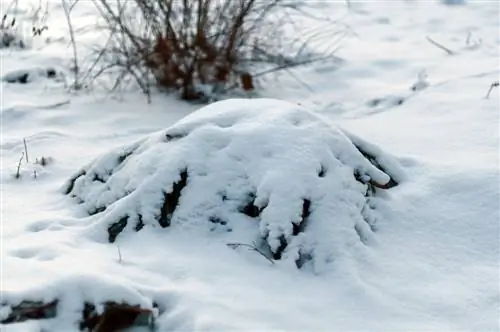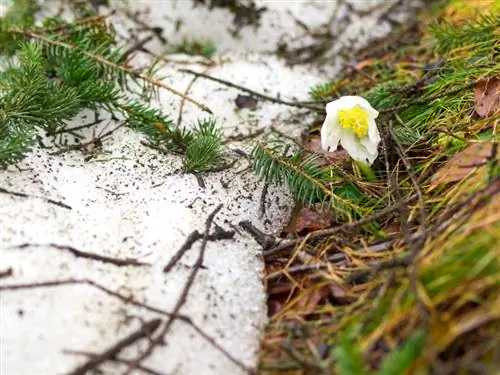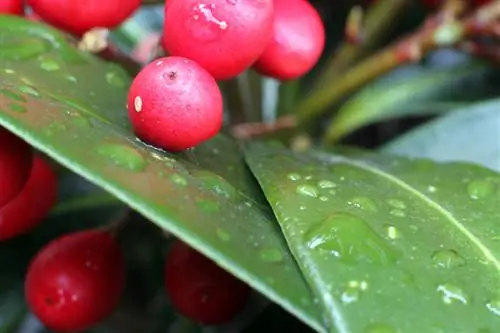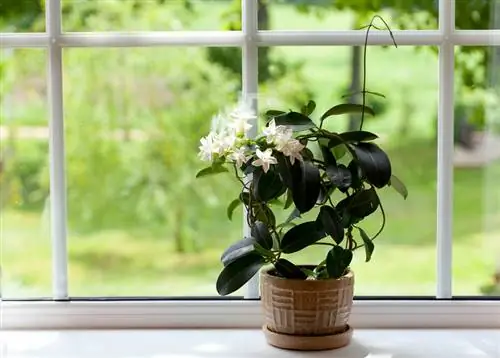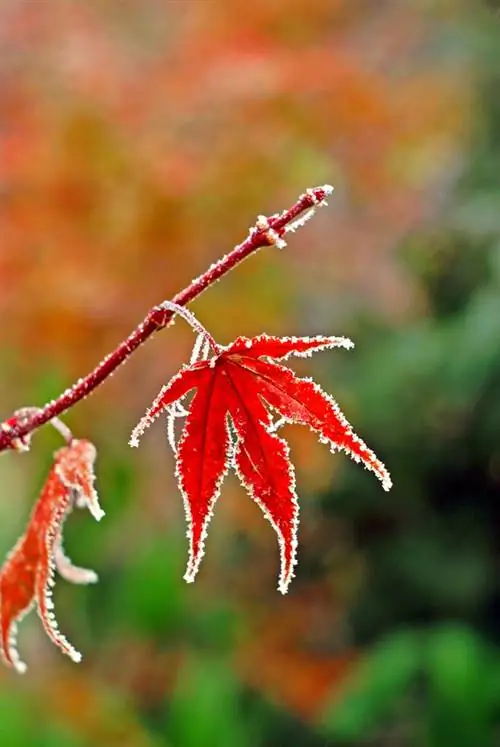- Author admin leonars@hobbygardeners.com.
- Public 2023-12-16 16:46.
- Last modified 2025-06-01 06:02.
In spring and summer, most perennials delight with beautiful flowers. Some species, such as the Christmas rose or the winter viburnum, shine in bright colors even in the cool season. But: What happens to the perennials that go dormant in winter? This post explains it.
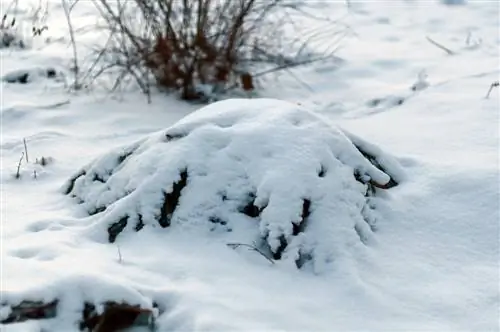
How to overwinter perennials in winter?
To overwinter perennials, hardy varieties should not need any help, while more sensitive perennials should receive a winter cover of spruce brush. Avoid winter damage caused by thirst by providing shade and stopping fertilizing in good time.
Perennials in hibernation
Most perennials are completely hardy, so they don't need any help overwintering. However, there are also varieties that require winter cover in order to survive the cold undamaged. This particularly includes evergreen perennials.
Note: When you buy your perennials, find out what you should do with the plants in winter.
Winter coverage limited in time
For perennials that need winter cover, you can use a layer of spruce twigs. Limit the time of the measure to what is absolutely necessary, as covering in warm weather increases the susceptibility to pests and fungal infestation.
Dhirst is the most common cause of winter damage
It is interesting that the majority of winter damage to perennials is not caused by freezing, but by dying of thirst. Don't underestimate the power of the winter sun. Provide shade - with a suitable cover.
Also important: Stop fertilizing (with a high concentration of nitrogen) in good time, by July at the latest.

